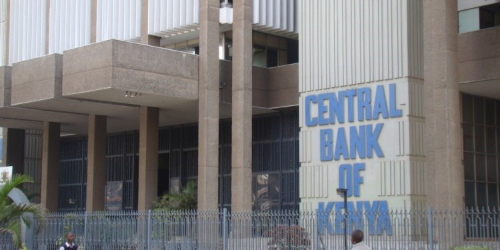Fintech Frontier: Pesalink Aims to Revolutionize Kenya's Digital Payments!

Kenya's digital payments landscape is notoriously complex, often involving multiple intermediaries and fees as money traverses from bank accounts to mobile wallets and ultimately to merchants. This fragmented system has prompted the Kenya Bankers Association (KBA) to champion Pesalink, an instant transfer platform initially designed to streamline interbank transactions. However, eight years post-launch, Pesalink's potential to revolutionize Kenyan payments hinges less on its technological capabilities and more on intricate political and governance considerations.
Launched in 2017, Pesalink's primary objective was to enable seamless, real-time money transfers between banks, overcoming the inefficiencies of older systems like Electronic Funds Transfer (EFT) and Real-Time Gross Settlement (RTGS), which were slow and unsuitable for retail use. Gituku Kirika, CEO of Integrated Payments Services Ltd (IPSL), the entity owning and operating Pesalink, highlights its initial role as a "back-office convenience" for the banking sector. Yet, the broader payments ecosystem has evolved dramatically, with M-Pesa dominating the market, processing an estimated KES 8 trillion ($61.9 billion) annually, and other players like Airtel Money, Telkom’s T-Kash, and numerous fintech wallets vying for market share. By 2024, Kenya registered 73 million mobile money accounts, contributing to a deeply fragmented environment where banks, fintechs, and Savings and Credit Cooperatives (SACCOs) operate independent networks, leading to duplicated agents and merchants managing multiple systems. Kirika describes this as a "duplication of effort, duplication of technology, and time-consuming for the owner," advocating for a shared agent infrastructure to eliminate such inefficiencies.
IPSL’s leadership is actively working to reposition Pesalink as a central, shared infrastructure capable of connecting banks, mobile money wallets, SACCOs, and fintechs into a cohesive, interoperable payment ecosystem. Kirika articulates this vision: "Our role is to reduce friction in payments. That means building rails that everyone can ride on — not just banks." This ambition mirrors global trends towards open, centralized payment rails. India's Unified Payments Interface (UPI) stands as a prime example, processing over 12 billion transactions in August (surpassing US card payments volume), while Nigeria's NIBSS Instant Payments (NIP) underpins more than 90% of bank-to-bank transfers in its economy. Both systems achieved scale by offering a single integration point and reducing transaction costs through high volume. Kirika believes Pesalink could be Kenya's equivalent of UPI or NIBSS.
Despite these aspirations, Pesalink faces significant challenges. Unlike India or Nigeria, where central banks mandated national switches, the Central Bank of Kenya (CBK) has outlined a National Payments Strategy but stopped short of enforcing a single platform. A critical weakness lies in Pesalink's governance; it remains wholly owned by the KBA. Kirika emphasizes that "World over, the rule is that the governance — that’s the decision-making, the shareholding — should be representative of the payment participants." This ownership structure fuels skepticism among fintechs and other wallets, who are wary of integrating into a system controlled by their direct competitors. The CBK is navigating a delicate balance, promoting lower costs and interoperability while also ensuring fair competition in the payment sector. IPSL is in ongoing dialogue with the CBK as it reviews the National Payments System Act and develops its consumer protection framework.
Pesalink promises to simplify transactions for users with multiple accounts by reducing "hops" – unnecessary transfers between different systems (e.g., wallet to mobile money to bank), each incurring a cost. By fostering open ecosystems, Pesalink aims to lower wholesale costs, which ideally would translate into reduced retail fees for consumers, although final pricing remains at the discretion of banks and wallets. The economic benefits for smaller players are compelling: a fintech launching in Kenya currently faces separate, costly technical and commercial negotiations with multiple banks and telcos. Pesalink’s proposed one-stop gateway would significantly lower these entry barriers, potentially leading to reduced consumer fees.
Currently, Pesalink connects 80 service providers, including all major banks and several SACCOs, and is actively engaging Safaricom and Airtel to integrate their mobile wallets. Its real breakthrough could come from demonstrating value at the merchant and agent levels. The CBK has discussed agent interoperability, which would allow a single agent to serve all banks on one system, eliminating the redundant recruitment of agents by individual banks or telcos. While progress has been slow due to pushback from dominant players, successful implementation could lead to a seamless system where any customer can transact at any agent, irrespective of the service provider’s branding. Other African nations are exploring similar models, such as Uganda’s Agent Banking Company (2018) with over 20,000 shared agents, and Ghana’s GhIPSS switch, which facilitates wallet-to-bank transfers and is expanding into QR-based merchant payments.
Beyond technical integration, standardizing the user experience, pricing, and messaging protocols is a crucial battle. Kirika notes, "To be able to scale payments, you need to standardise everything from the user experience, price, messaging protocols." The current lack of uniformity, with each service provider designing its own interface, prevents Pesalink from achieving the broad consumer recognition enjoyed by M-Pesa, which offers a consistent, familiar experience. Ultimately, Pesalink's evolution from a back-office utility to Kenya's overarching "digital payments rail" hinges on establishing itself as a neutral infrastructure, transcending its perception as a "bank club." This requires not just proven technology but also the trust and policy alignment—similar to what propelled India’s UPI and Nigeria’s NIBBS to success. The coming years, particularly with CBK’s regulatory advancements and Pesalink’s strategic partnerships, will be critical in determining whether it can become the invisible backbone of everyday transactions.
You may also like...
Bundesliga's New Nigerian Star Shines: Ogundu's Explosive Augsburg Debut!

Nigerian players experienced a weekend of mixed results in the German Bundesliga's 23rd match day. Uchenna Ogundu enjoye...
Capello Unleashes Juventus' Secret Weapon Against Osimhen in UCL Showdown!

Juventus faces an uphill battle against Galatasaray in the UEFA Champions League Round of 16 second leg, needing to over...
Berlinale Shocker: 'Yellow Letters' Takes Golden Bear, 'AnyMart' Director Debuts!

The Berlin Film Festival honored
Shocking Trend: Sudan's 'Lion Cubs' – Child Soldiers Going Viral on TikTok

A joint investigation reveals that child soldiers, dubbed 'lion cubs,' have become viral sensations on TikTok and other ...
Gregory Maqoma's 'Genesis': A Powerful Artistic Call for Healing in South Africa

Gregory Maqoma's new dance-opera, "Genesis: The Beginning and End of Time," has premiered in Cape Town, offering a capti...
Massive Rivian 2026.03 Update Boosts R1 Performance and Utility!

Rivian's latest software update, 2026.03, brings substantial enhancements to its R1S SUV and R1T pickup, broadening perf...
Bitcoin's Dire 29% Drop: VanEck Signals Seller Exhaustion Amid Market Carnage!

Bitcoin has suffered a sharp 29% price drop, but a VanEck report suggests seller exhaustion and a potential market botto...
Crypto Titans Shake-Up: Ripple & Deutsche Bank Partner, XRP Dips, CZ's UAE Bitcoin Mining Role Revealed!

Deutsche Bank is set to adopt Ripple's technology for faster, cheaper cross-border payments, marking a significant insti...




